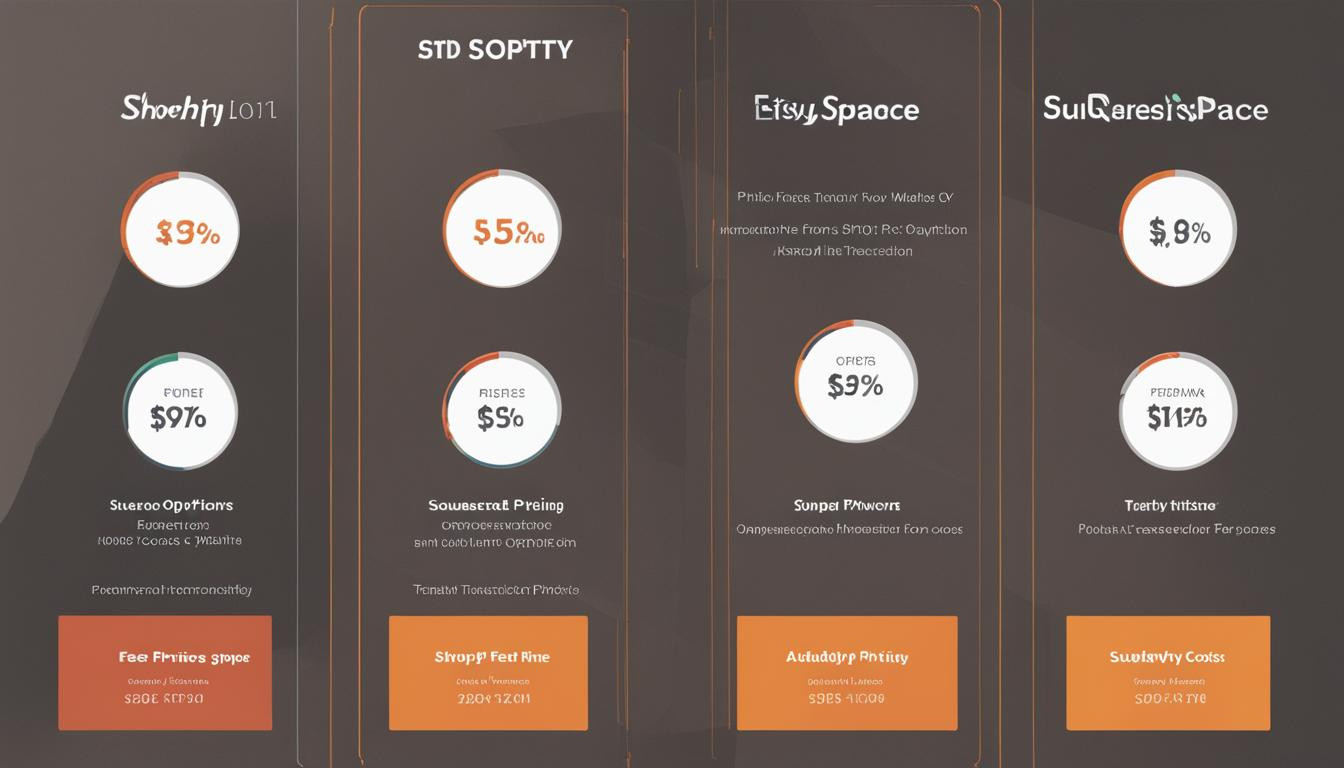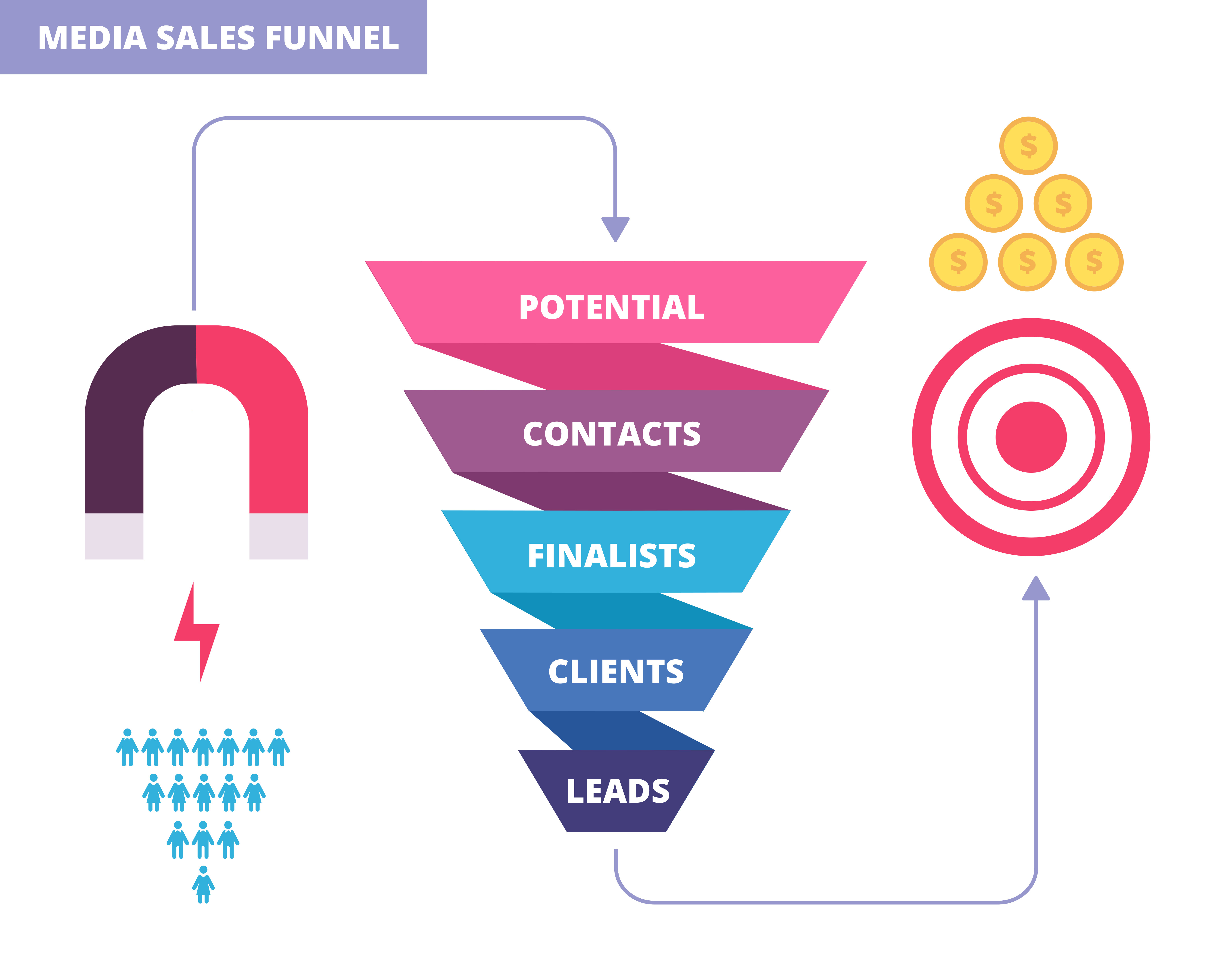Squarespace vs. Etsy vs. Shopify: The Perfect Match for Your Online Store

Squarespace vs. Etsy vs. Shopify: The Perfect Match for Your Online Store
Are you considering starting an online store? With so many e-commerce platforms available, it can be overwhelming to choose the right one. In this article, we will compare Squarespace and Etsy, two popular e-commerce platforms, to help you determine which one is the perfect match for your online store. We will explore their features, pros, and cons, and provide insights into making the right choice for your business. Additionally, we will briefly touch on Shopify, another popular e-commerce platform, to give you a comprehensive understanding of your options.
Create an image that depicts the differences between Squarespace and Etsy for an online store owner. Use contrasting colors and visual elements to showcase the unique features of each platform.
Key Takeaways:
Comparing Squarespace and Etsy can help you decide which e-commerce platform is best for your online store.
Consider the features, pros, and cons of each platform before making a decision.
Shopify is another popular e-commerce platform that you may want to explore.
Choosing the right platform is crucial for selling online and building your website.
Shopify, Etsy, and Squarespace: Different Focuses and Targeted Audiences
When it comes to choosing an e-commerce platform, understanding the different focuses and targeted audiences of Shopify, Etsy, and Squarespace is crucial. Each platform caters to specific types of businesses and individuals, offering unique features and customization options.
Shopify: Robust Features for Small-to-Medium Businesses
Shopify is an ideal choice for small-to-medium businesses that want to establish an online presence and sell their products effectively. With its powerful features and extensive range of supporting apps, Shopify provides a comprehensive solution for e-commerce. From inventory management and order fulfillment to marketing and analytics tools, Shopify equips businesses with the tools they need to succeed in the online marketplace.
Etsy: Simplicity and Attention to Handmade and Vintage
Etsy, on the other hand, is a platform dedicated to individuals selling handmade items and vintage goods. With a focus on simplicity and ease of use, Etsy aims to highlight the unique offerings of artisans and creatives. The platform's emphasis on handmade and vintage items attracts customers looking for one-of-a-kind products with a personal touch. Sellers on Etsy benefit from a supportive community and a dedicated marketplace for their niche products.
Squarespace: Visual Appeal and Customization for Creatives
Squarespace targets artists, photographers, and other creatives who prioritize visually stunning web design and customization options. The platform offers a range of aesthetically pleasing and responsive themes, enabling users to create visually appealing websites that showcase their work. With its drag-and-drop feature and customizable code, Squarespace empowers individuals to create unique and personalized online portfolios or stores.
By understanding the different focuses and targeted audiences of Shopify, Etsy, and Squarespace, you can choose the platform that aligns with your business goals and priorities. Whether you're a small business owner, an artist, or a seller of unique handmade items, each platform offers distinct advantages to help you succeed in the world of e-commerce.
Customization Options: Shopify, Etsy, and Squarespace
When it comes to building your online store, customization options play a crucial role in creating a unique and visually appealing web design. In this section, we will explore the customization capabilities of three popular e-commerce platforms: Shopify, Etsy, and Squarespace.
Shopify
Shopify offers a powerful drag-and-drop feature that allows users to customize their store's design and layout with ease. Whether you're a beginner or an experienced web designer, Shopify's intuitive interface makes it simple to create a visually stunning online store. In addition, Shopify provides a wide range of pre-made themes, allowing you to choose the one that best suits your brand and style. But that's not all — if you have coding skills or prefer more advanced design aspects, Shopify allows you to utilize customizable code, giving you full control over the look and feel of your store.
Etsy
Unlike Shopify, Etsy has limited customization options available for its users. While you can edit images and banners to reflect your brand identity, you cannot add custom code or extensively modify the design of your Etsy store. However, despite its limited customization capabilities, Etsy's focus on simplicity and user-friendly experience can still help you create an appealing online store for selling your unique handmade items or vintage goods.
Squarespace
Similar to Shopify, Squarespace provides a drag-and-drop feature that makes customization a breeze. With over 100 pre-made themes, you can easily find the perfect design for your brand. Squarespace offers a range of visually stunning options that cater to artists, photographers, and other creatives. If you're looking for customization beyond the pre-made themes, Squarespace also allows you to utilize customizable code, providing you with greater flexibility to achieve your desired web design.
Whether you're looking for extensive customization options or a simpler design process, each platform has its own strengths. Shopify offers a robust set of customization tools, while Etsy emphasizes user-friendliness and Squarespace caters to visually-driven creatives. Consider your specific needs and preferences before making a decision on which platform to use for your online store.
Scalability and App Variety: Shopify vs. Etsy vs. Squarespace
When it comes to scalability and app variety, Shopify, Etsy, and Squarespace offer unique features and options for online businesses. Let's explore how these platforms compare in terms of their scalability, app offerings, support channels, payment gateways, and transaction fees.
Shopify: Scalability and Flexibility
Shopify is a highly scalable platform that caters to businesses of all sizes. Whether you're a small startup or an enterprise-level business, Shopify provides the tools and resources you need to grow. With over 8,000 apps available on the Shopify App Store, you can easily enhance your online store's functionality and customize it to meet your specific needs. Additionally, Shopify offers multiple support channels to assist you along the way. You can integrate with various payment gateways, including its own payment gateway, Shopify Payments. However, it's important to note that Shopify charges transaction fees for using third-party payment gateways.
Etsy: A Dedicated Marketplace
Etsy is a dedicated marketplace that caters to individuals selling unique and handmade items. It has established itself as a trusted brand for artisans and crafters, providing them with a platform to showcase and sell their products. Etsy's setup process is simplified, making it easy for sellers to get started quickly. While Etsy offers limited app and integration options compared to Shopify, it compensates with its established brand presence and a dedicated community of buyers who actively seek out unique products. However, it's worth mentioning that Etsy charges relatively high transaction fees compared to other platforms.
Squarespace: Streamlined Setup and Lower Transaction Fees
Although Squarespace has limited app and integration options compared to Shopify, it has its own unique advantages. Squarespace boasts a simplified setup process, allowing businesses to quickly establish their online presence. It provides its own payment options and lower transaction fees compared to platforms like Etsy. Additionally, Squarespace offers pre-made themes that are visually appealing and easy to customize, catering to creatives who prioritize design aesthetics. While it may not offer the same app variety as Shopify, Squarespace still provides a solid foundation for small businesses looking to establish their online store.
Overall, Shopify, Etsy, and Squarespace each offer their own strengths when it comes to scalability, app variety, and payment options. It ultimately depends on the specific needs of your business and the importance you place on factors such as dedicated marketplaces, established brands, or simplified setup processes. Consider the unique features of each platform and evaluate which one aligns best with your goals and requirements.
Pricing Plans: Shopify, Etsy, and Squarespace
When considering an e-commerce platform for your online store, pricing plans play a vital role in determining the best fit for your business needs and budget. Let's compare the pricing options offered by Shopify, Etsy, and Squarespace to help you make an informed decision.
Shopify
Shopify offers five different pricing plans designed to accommodate businesses of all sizes:
PlanSubscription FeeTransaction FeesOnline Credit Card RatesSquare Online Store FeesStarter$9 per month2.9% + 30¢2.9% + 30¢N/ABasic$29 per month2.9% + 30¢2.9% + 30¢N/AShopify$79 per month2.6% + 30¢2.6% + 30¢N/AAdvanced$299 per month2.4% + 30¢2.4% + 30¢N/AShopify PlusCustom PricingN/AN/AN/A
Etsy
Etsy, known for supporting individuals selling unique and handmade items, offers two pricing plans:
PlanSubscription FeeTransaction FeesOnline Credit Card RatesSquare Online Store FeesEtsy Standard$05% per sale3% + $0.25N/AEtsy Plus$10 per month5% per sale3% + $0.25N/A
Squarespace
Squarespace offers plans tailored to different needs and goals:
PlanSubscription FeeTransaction FeesOnline Credit Card RatesSquare Online Store FeesPersonal$12 per month0% - Squarespace does not charge transaction fees2.9% + 30¢N/ABusiness$18 per month0% - Squarespace does not charge transaction fees2.9% + 30¢N/ACommerce (Basic)$26 per month0% - Squarespace does not charge transaction fees2.9% + 30¢N/ACommerce (Advanced)$40 per month0% - Squarespace does not charge transaction fees2.9% + 30¢N/A
It's essential to evaluate the features and services provided alongside the pricing plans to make the best choice for your online store's success.
Free Trials and Special Deals: Shopify vs. Etsy vs. Squarespace
When it comes to choosing the perfect e-commerce platform for your online store, taking advantage of free trials and special deals can be a game-changer. In this section, we'll explore the free trial offerings and exclusive discounts provided by Shopify, Etsy, and Squarespace.
Shopify
Shopify understands the importance of trying before committing, which is why they offer a generous 14-day free trial. This trial period allows you to explore the platform's features and determine if it meets your business needs. In addition to the free trial, Shopify provides special limited-time deals such as a first 3-month deal for only $1/month. If you're looking for long-term savings, Shopify also offers a discount of 25% off if billed annually.
Etsy
Although Etsy doesn't provide a free trial like Shopify, they occasionally offer limited-time discounts that can help you save on their platform. Keep an eye out for these discounts to make the most of your Etsy selling experience.
Squarespace
Squarespace understands the value of getting started with confidence, which is why they offer a 14-day free trial. During this trial period, you can explore their intuitive platform and see if it aligns with your business needs. If you decide to take the leap and commit to Squarespace, you can take advantage of a 25% discount if billed annually, allowing you to save on your subscription fees.
Now that you know about the free trials and special deals offered by Shopify, Etsy, and Squarespace, you can make an informed decision that aligns with your budget and business goals.
Store Design: Shopify vs. Squarespace vs. Etsy
When it comes to store design, the visual appeal of your online store plays a crucial role in captivating customers and driving sales. Let's compare the store design features offered by Shopify, Squarespace, and Etsy to help you make an informed decision.
Shopify
Shopify provides users with a user-friendly drag-and-drop feature, making it easy to customize your store's design without any coding knowledge. You can create a visually stunning website by choosing from a wide selection of responsive themes that are optimized for mobile devices. Shopify also offers various features to showcase your products effectively, including product listings and image galleries.
Squarespace
Similarly, Squarespace offers a drag-and-drop feature for easy customization of your online store's design. With over 100 pre-made themes, you have plenty of options to choose from. Squarespace prioritizes visual appeal and allows you to create a unique and beautiful website to showcase your products or services.
Etsy
While Etsy is primarily known for its focus on unique and handmade items, its customization options for store design are limited. Users can only edit images and banners without the ability to add custom code or choose from pre-made themes. However, Etsy's simplicity and minimalistic approach can still create an attractive storefront for handmade goods.
In summary, Shopify and Squarespace offer more extensive customization options and a wider selection of pre-made themes, allowing you to create visually appealing online stores. Etsy, on the other hand, may be a suitable choice if you prefer a simpler design and have less focus on visual customization.
PlatformCustomization OptionsPre-made ThemesResponsive DesignProduct ListingsShopifyDrag-and-drop feature, customizable codeWide selectionYesYesSquarespaceDrag-and-drop featureOver 100 themesYesNoEtsyLimited customizationNoN/AN/A
Payment Gateways: Shopify vs. Squarespace vs. Etsy
In the realm of e-commerce, choosing the right payment gateways can make or break your online store's success. Let's compare the payment options offered by Shopify, Squarespace, and Etsy to help you make an informed decision.
Payment Gateways with Shopify
When it comes to payment gateways, Shopify offers the most extensive range of options. Here are some of the key players:
Shopify Payments: Shopify's own payment gateway provides a seamless and secure payment experience for both you and your customers.
PayPal: The popular online payment platform is integrated with Shopify, offering a trusted and widely recognized payment option.
Stripe: Another leading payment gateway that seamlessly integrates with Shopify, providing a smooth checkout experience and supporting various currencies.
More than 100 integrated payment providers: Shopify gives you access to a vast network of payment providers worldwide, ensuring you can cater to your customers' preferred payment methods.

Payment Gateways with Squarespace
Squarespace collaborates with a smaller selection of payment providers. These include:
PayPal: The renowned online payment solution is integrated with Squarespace, allowing customers to make secure transactions.
Stripe: Squarespace also supports Stripe, empowering you to accept credit card payments with ease.
Payment Gateways with Etsy
As a platform primarily focused on handcrafted goods and unique items, Etsy offers a more limited selection of payment gateways:
Etsy Payments: Etsy's in-house payment system, previously known as Direct Checkout, provides a seamless way to receive payments on the platform.
Licensed providers: Etsy also works with licensed providers like Worldpay, PayPal, and Adyen to expand payment options for sellers.
It's worth noting that Shopify differentiates itself from Squarespace and Etsy by offering Google Pay as an additional payment option. This can provide an added convenience for customers who prefer this method of payment.
Point-of-Sale (POS) Functionality and Dropshipping: Shopify vs. Squarespace vs. Etsy
When it comes to point-of-sale (POS) functionality and dropshipping, Shopify, Squarespace, and Etsy offer different options to cater to your business needs. Let's explore the features and capabilities of each platform.
Shopify
Shopify excels in providing seamless point-of-sale functionality. With their Shopify POS system, you can easily accept payments and manage inventory in your brick-and-mortar store, while keeping everything synchronized with your online store. This means you can offer flexible payment options and track sales from both channels in one place.
Furthermore, Shopify offers extensive dropshipping functionality. They have partnered with nearly 500 supporting apps, allowing you to source and fulfill orders efficiently. Whether you want to establish your own dropshipping business or expand your existing store with dropshipped products, Shopify provides the necessary tools and integrations.
Squarespace
Squarespace also offers POS functionality, allowing you to accept credit cards, mobile payments, and cash in your physical store. However, it's important to note that Squarespace POS is currently only available in the United States.
When it comes to dropshipping, Squarespace has limited options compared to Shopify. While they provide integrations with a few dropshipping apps, the selection is not as extensive as what Shopify offers. If dropshipping is a crucial aspect of your business, you may find Shopify's capabilities more suitable.
Etsy
Unlike Shopify and Squarespace, Etsy does not offer its own point-of-sale services. However, if you sell unique handmade items or vintage goods on Etsy, you can still leverage their online platform to reach a wide customer base.
In terms of dropshipping, Etsy has limited options available. Its focus is primarily on supporting individual sellers and their own unique products, rather than facilitating dropshipping arrangements. If dropshipping is a significant part of your business model, Shopify's robust capabilities may be a more optimal choice.
Overall, when considering point-of-sale functionality and dropshipping, Shopify stands out as the platform that offers the most comprehensive solutions. From flexible payment options to seamless synchronization between online and offline stores, Shopify provides the tools you need to efficiently manage your business. Additionally, their extensive dropshipping functionality sets them apart from Squarespace and Etsy. However, if you have specific requirements or a niche market, it's important to carefully evaluate the features and limitations of each platform to make the best choice for your business.
Pricing Comparison: Shopify vs. Squarespace vs. Etsy
When choosing an e-commerce platform for your online store, pricing plays a crucial role in your decision-making process. In this section, we will compare the pricing plans, subscription fees, transaction fees, online credit card rates, and payment processing fees of Shopify, Squarespace, and Etsy, helping you make an informed choice for your business.
Shopify
Shopify offers a range of pricing plans to accommodate businesses of all sizes and needs. Here are their pricing plans:
PlanSubscription FeeTransaction FeeOnline Credit Card RatesPayment Processing FeesStarter$9/month2.9% + 30¢2.9% + 30¢VariesBasic$29/month2.9% + 30¢2.9% + 30¢VariesShopify$79/month2.6% + 30¢2.6% + 30¢VariesAdvanced$299/month2.4% + 30¢2.4% + 30¢VariesPlusCustom PricingVariesVariesVaries
Squarespace
Squarespace offers four pricing plans, each designed to meet different business requirements. Here are the pricing details:
PlanSubscription FeeTransaction FeeOnline Credit Card RatesPayment Processing FeesPersonal$16/month3% + $0.30VariesVariesBusiness$26/month2% + $0.30VariesVariesCommerce (Basic)$35/month0% + $0.30VariesVariesCommerce (Advanced)$54/month0% + $0.30VariesVaries
Etsy
Etsy offers two pricing plans, tailored to support creators and artists. Here are the pricing details:
PlanSubscription FeeTransaction FeeOnline Credit Card RatesPayment Processing FeesEtsy Standard$0/month5% + $0.20VariesVariesEtsy Plus$10/month5% + $0.20VariesVaries
It's important to note that transaction fees and online credit card rates may vary depending on the chosen plan and payment gateway integration. Make sure to consider these pricing factors when selecting the right e-commerce platform for your online store.

Backup and Storage: Shopify vs. Squarespace
When it comes to backup and storage options, both Shopify and Squarespace offer unlimited storage for website content. This means you can store all your product images, videos, and other media without worrying about running out of space. However, it's important to note that on both platforms, users are responsible for manually backing up their content.
While unlimited storage is certainly a convenience, it's crucial to have a backup strategy in place to safeguard your valuable data. In the event of accidental deletions, technical issues, or security breaches, having a backup ensures that you can restore your website and content quickly and easily.
Shopify provides users with several backup options to choose from. You can use the built-in backup and restore feature, which allows you to create manual backups and restore them as needed. Additionally, Shopify offers the ability to export your store data, including products, customers, orders, and more, providing an extra layer of protection.
Squarespace, on the other hand, doesn't have an integrated backup feature. However, it does offer a way to export your website's data. You can export your site's content, including pages, blog posts, galleries, and products, as an XML file. Although this export feature doesn't create a complete backup of your entire website, it allows you to save your content externally for added peace of mind.
Remember, while both platforms provide unlimited storage, having a backup strategy is essential for ensuring the long-term security and integrity of your website and its content.
Conclusion: Choosing the Right E-commerce Platform
When it comes to choosing the right e-commerce platform for your online store, several factors need to be considered. The decision between Squarespace, Etsy, and Shopify depends on your specific business needs and goals.
Shopify offers comprehensive features and unmatched flexibility, making it suitable for businesses of all sizes. With its wide range of customization options, scalability, and abundant app variety, Shopify ensures that you can tailor your online store to your unique requirements. The platform also supports multiple payment gateways and provides efficient point-of-sale (POS) functionality, including seamless integration between online and offline stores. Moreover, Shopify's extensive dropshipping capabilities make it a perfect choice for businesses looking to expand their reach.
On the other hand, Squarespace excels in design and offers a user-friendly experience. It caters to creatives such as artists and photographers who prioritize visually stunning web design. With its drag-and-drop feature and over 100 pre-made themes, Squarespace simplifies the process of creating an aesthetically appealing online store. While it may have less extensive app and integration options compared to Shopify, Squarespace's focus on visual appeal and ease of use makes it a popular choice.
Etsy, with its dedicated marketplace and focus on unique and handmade items, is the go-to platform for individuals looking to sell their creations. It offers simplicity and draws customer attention to the products being sold. Although it has limited customization options and may charge higher transaction fees, Etsy provides a dedicated community and an established brand presence.
To select the right e-commerce platform, consider factors such as customization options, scalability, app variety, pricing plans, store design, payment gateways, POS functionality, dropshipping capabilities, pricing, backup, and storage options. Carefully assessing your specific business needs and goals will help you make an informed decision and set your online store up for success.
FAQ
What are the main differences between Shopify, Etsy, and Squarespace?
Shopify is ideal for small-to-medium businesses, offering robust features and supporting apps. Etsy is a platform for individuals selling handmade items and vintage goods. Squarespace targets artists and photographers who prioritize visually stunning web design.
How customizable are the storefronts on Shopify, Etsy, and Squarespace?
Shopify and Squarespace provide drag-and-drop customization features and pre-made themes, while Etsy has limited customization options and only allows editing of images and banners.
Can I easily scale my online store on Shopify, Etsy, and Squarespace?
Shopify supports businesses of all sizes and offers a wide variety of apps. Etsy offers a dedicated marketplace and established brand presence. Squarespace has limited app and integration options compared to Shopify.
What are the pricing plans and fees for Shopify, Etsy, and Squarespace?
Shopify offers five pricing plans with various subscription and transaction fees. Etsy has two pricing plans with transaction and subscription fees. Squarespace also offers multiple plans with different subscription and transaction fees.
Do Shopify, Etsy, and Squarespace offer any free trials or special deals?
Shopify offers a 14-day free trial and special deals like $1/month for the first 3 months or 25% off if billed annually. Etsy may offer limited-time discounts. Squarespace offers a 14-day free trial and a 25% discount if billed annually.
How can I customize the design of my online store on Shopify, Squarespace, and Etsy?
Shopify allows customization through drag-and-drop features, customizable code, and a wide selection of responsive themes. Squarespace provides drag-and-drop customization and over 100 pre-made themes. Etsy has limited customization options and does not offer themes for store design.
What payment gateways are available on Shopify, Squarespace, and Etsy?
Shopify offers a wide range of payment gateways, including Shopify Payments, PayPal, Stripe, and more than 100 integrated providers. Squarespace collaborates with fewer than 10 payment providers, while Etsy uses Etsy Payments or licensed providers like Worldpay, PayPal, or Adyen.
Do Shopify, Squarespace, and Etsy support point-of-sale (POS) functionality?
Yes, Shopify provides extensive POS functionality, allowing flexible payment options and seamless synchronization between online and offline stores. Squarespace POS supports credit cards, mobile payments, and cash but is only available in the US. Etsy does not offer point-of-sale services.
What are the pricing comparisons among Shopify, Squarespace, and Etsy?
Shopify's pricing plans and fees are more diverse. Squarespace and Etsy have a smaller number of plans, but Etsy charges higher transaction fees compared to Squarespace. Squarespace has the lowest transaction fees among the three platforms.
Do Shopify and Squarespace provide backup and storage options?
Both Shopify and Squarespace offer unlimited storage for website content. However, users are responsible for manually backing up their content on both platforms.
Posted on: December 21st, 2023
By: ManaWeb
shopify
etsy
squaraspace
ecommerce
marketplace
onine store
About the author

ManaWeb
Web Marketing Expert
As marketing and technology enthusiasts, we share our insights and experiences working with and testing different strategies, solutions, apps, and platforms.
If you have any questions or want to work with us, then just send us a quick email and get the conversation started.

How do you attract visitors to your website?
Sometimes you look at the statistics for a website and realise that visitors are not living up to your expectations.

Scaling Up: Sales Tactics That Catapult Business Growth
In the ever-evolving business world, growth is not just a goal; it's a necessity. If you're not moving forward, you're staying caught up. But the question that keeps many entrepreneurs and business leaders up at night is: How do you scale up your business effectively? The answer, my friends, lies in mastering the art of sales.

Mastering the Art of User-Centric Web Design: Tips and Tricks
In the vast and ever-evolving realm of web design, the key to creating a truly exceptional website lies in putting your users at the forefront. As we navigate through the digital age, mastering the art of user-centric web design is not just a skill but a necessity. After all, your website's success hinges on how well it caters to your audience's needs, desires, and expectations.